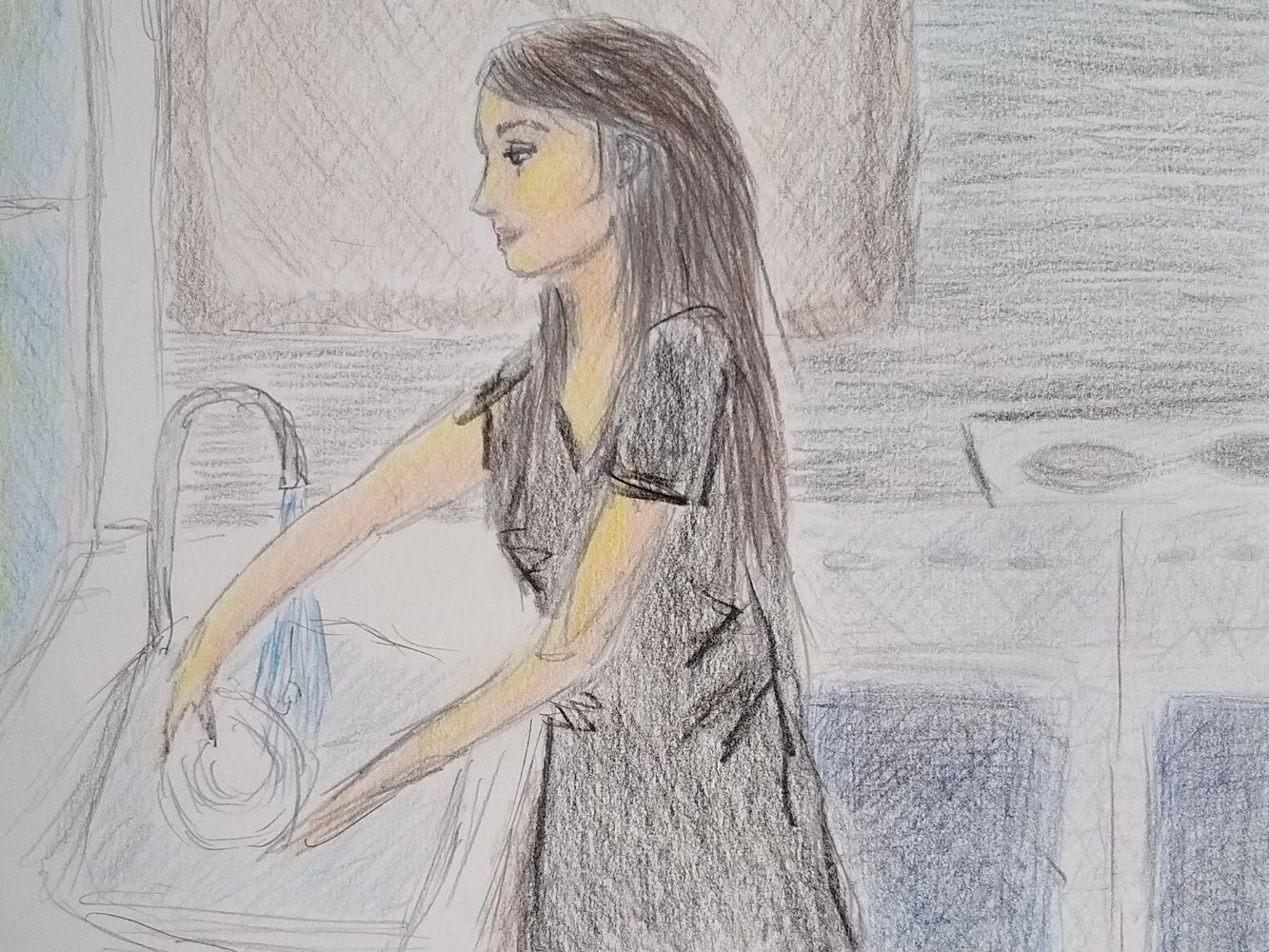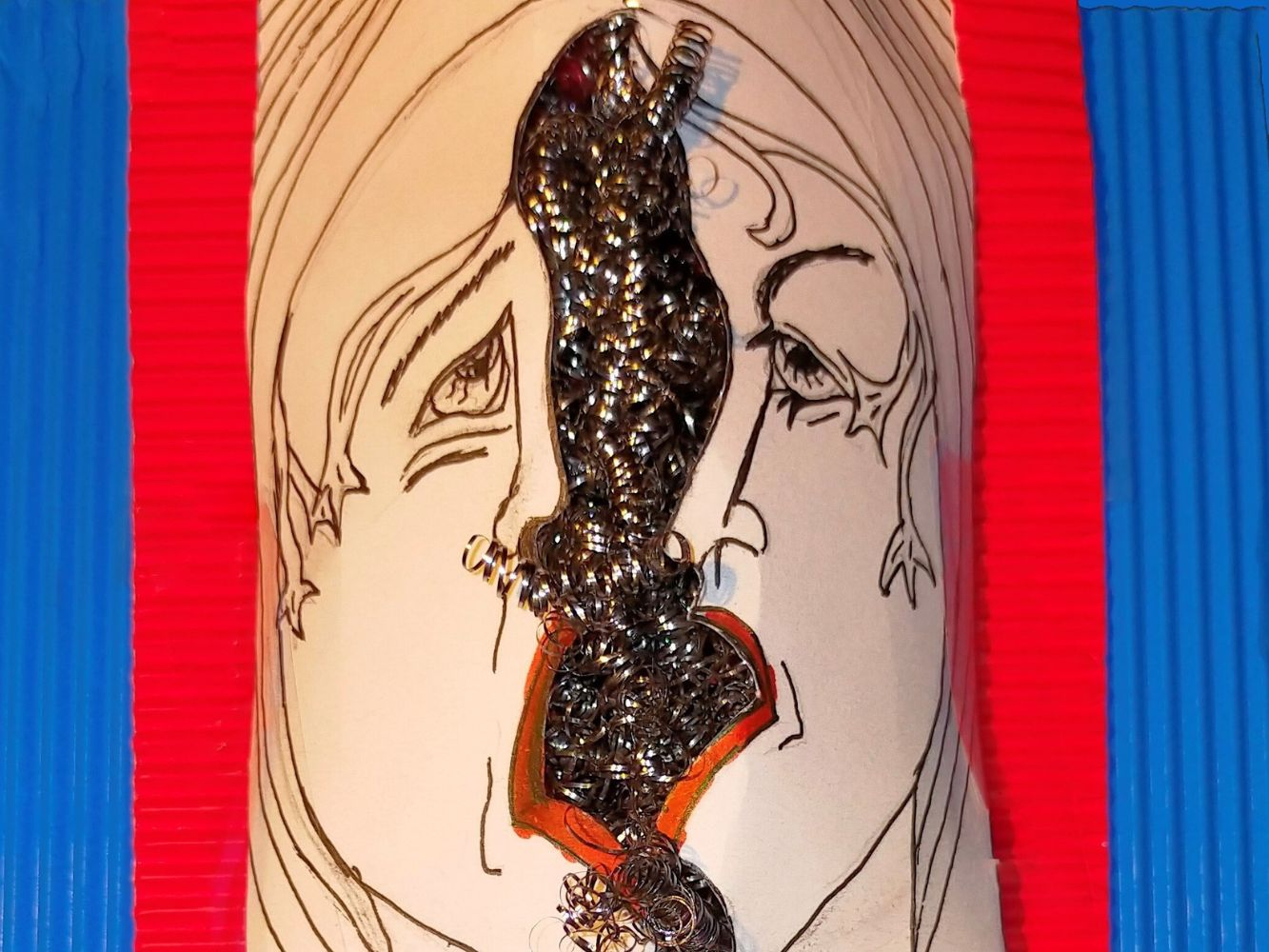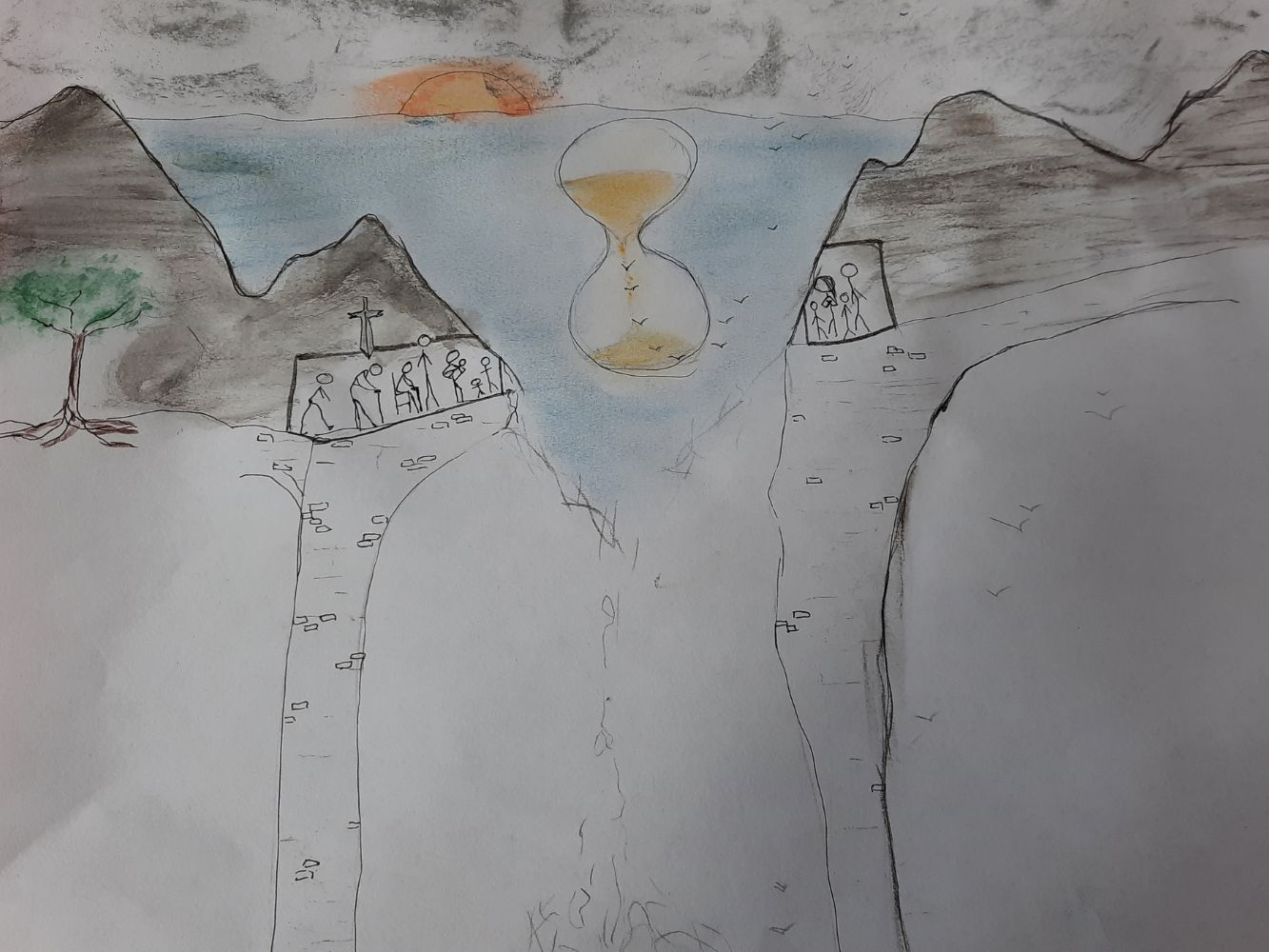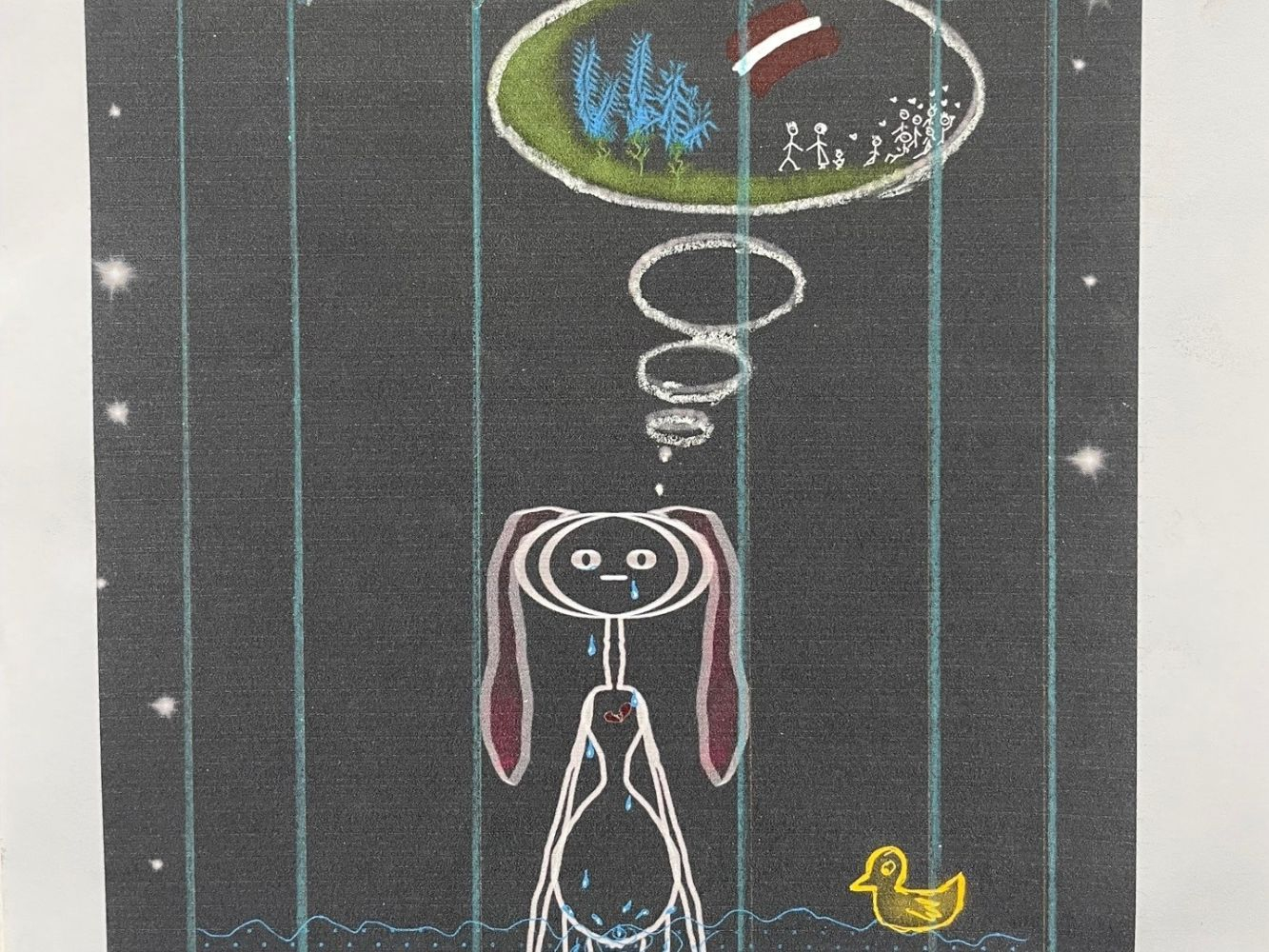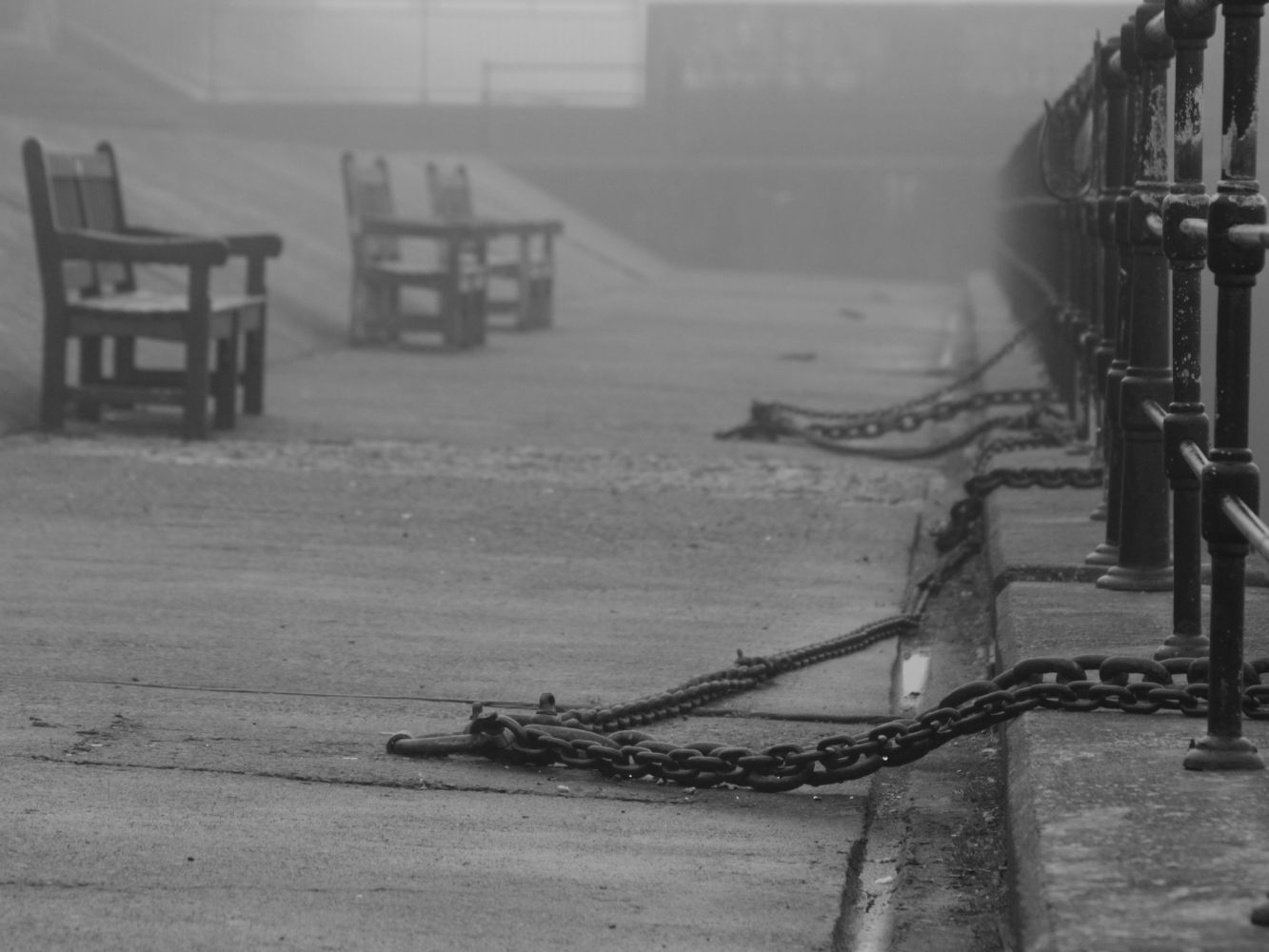Falling out of love with the UK: A visual tour of EU citizens emotions after Brexit and Covid
A team of researchers from RGU has carried out a unique study to explore the emotional wellbeing of EU citizens living in the UK and with care responsibilities both in the UK and in Europe. The team created a visual tour of participants’ emotions and found Brexit has caused a profound and lasting impact on EU citizen’s sense of identity, that has been heightened by the Covid imposed lockdowns.
RGU Sociology lecturer, Lucia Ruggerone, and Gray’s School of Art researcher, Charlie Hackett, are soon to publish their work in a free and fully downloadable digital book. RGView caught up with the research duo, to find out more.
Researcher Lucia Ruggerone, from RGU’s School of Applied Social Sciences, said: “Having secured funding from the British Academy in 2021, we set out to explore the emotional wellbeing of EU citizens living in the UK and with care responsibilities during the lockdowns imposed by pandemic. We wanted to understand the feelings brought on by the ‘double whammy’ of Brexit and Covid, and to find out if and how EU citizens were able to cope, emotionally and practically with their situation and changed citizen status.
“Our study focused on middle-aged EU citizens, as they represent a “sandwich generation’, likely to have attachments and bonds within the UK and in their European home country. Those interviewed came from a range of countries including Italy, France, Germany, Spain, the Czech Republic, Poland, Hungary, Bulgaria, Denmark, Switzerland, and Latvia.”
Unlike other social studies that have explored people’s attitudes post Brexit, participants were sent a mixture of art materials, and asked to produce artworks to show their emotions. The participants artworks were the starting point to open ended discussions on Zoom, and included collages, drawings, photos, a video. One participant even selected a piece of classical music, to represent their mood and feelings during lockdown.
The research identified recurrent themes, representing the feelings and moods that the participants experienced. These included a heightened sense of loss, guilt and vulnerability, among others.
The downbeat atmosphere, reported by many, was due to pandemic and related lockdowns, which had an amplified effect on them because they were already ‘sad’ about Brexit and felt rejected by a country they had elected as the “home’ of their choice.
Others mentioned the emotion of ‘love’ and talked about their heart being broken as result of Brexit and the lost love for the UK.
Feelings of nostalgia also came out, with many highlighting the sense of displacement caused by Brexit and the pain of the forced isolation from Europe imposed by the lockdown periods. In some of the artworks produced, the houses or specific rooms pictured, signify a sense of entrapment, whilst many hinted at the nostalgia they felt for their native countries.
Another emotion highlighted in the participants’ artwork was the feeling of being ‘torn’, between their bonds and duties in the UK and their desire to be close to their families in Europe during the lockdown periods.
Others felt angry with the UK, especially with England, where the majority voted to leave, because they felt rejected by a country they had chosen as their home and where they had invested so much of their energies and skills.
The isolation and lack of social contact brought about by lockdown also caused some to feel extreme boredom and to lose their sense of purpose. Although daily chores helped, others highlighted their low mood and sense of helplessness.
Fellow researcher, Charlie Hackett from Gray’s School of Art, explains more; “Using artwork gave the participants agency to lead the researchers in understanding their experiences of applying for settled status and living through Covid. One artwork can sum up the six years between the Brexit referendum, pandemic and leaving the EU. Their artworks showed symbols of impending doom, such as a Damocles sword, drawings with bridges that had collapsed into the sea, impenetrable channel crossings between the UK and Europe, staring googly eyes that represented xenophobic tendencies with people feeling they were being watched.”
Reflecting on the significance of the research, Charlie and Lucia said: “It was an emotive piece of work, undoubtedly inspired by an autobiographical note (Lucia is Italian). It was great to investigate what other Europeans felt about these two major events and to explore with them their vision for the future.
“It was also rewarding to hear some of them say that the participation in the project was somewhat therapeutic, giving them a voice which they felt they had lost”.
In terms of social policy, the researchers found that the participants living in Scotland felt more positive about staying in the UK and felt that that the Scottish government cared about them more than the UK government, which seems more hostile to immigrants including those from Europe. The study’s focus on middle aged individuals, caring for older and younger generations across European countries during the pandemic, will also be useful to public health policy makers in understanding transnational care during crisis such as the Covid pandemic.
Main image shows art work by participant 'Simona '* who explored the emotion of 'love' post Brexit / Covid. The other images include artworks/ photography featured in the digital book. *The identity of participants has been kept anonymous/changed to preserve confidentiality.

